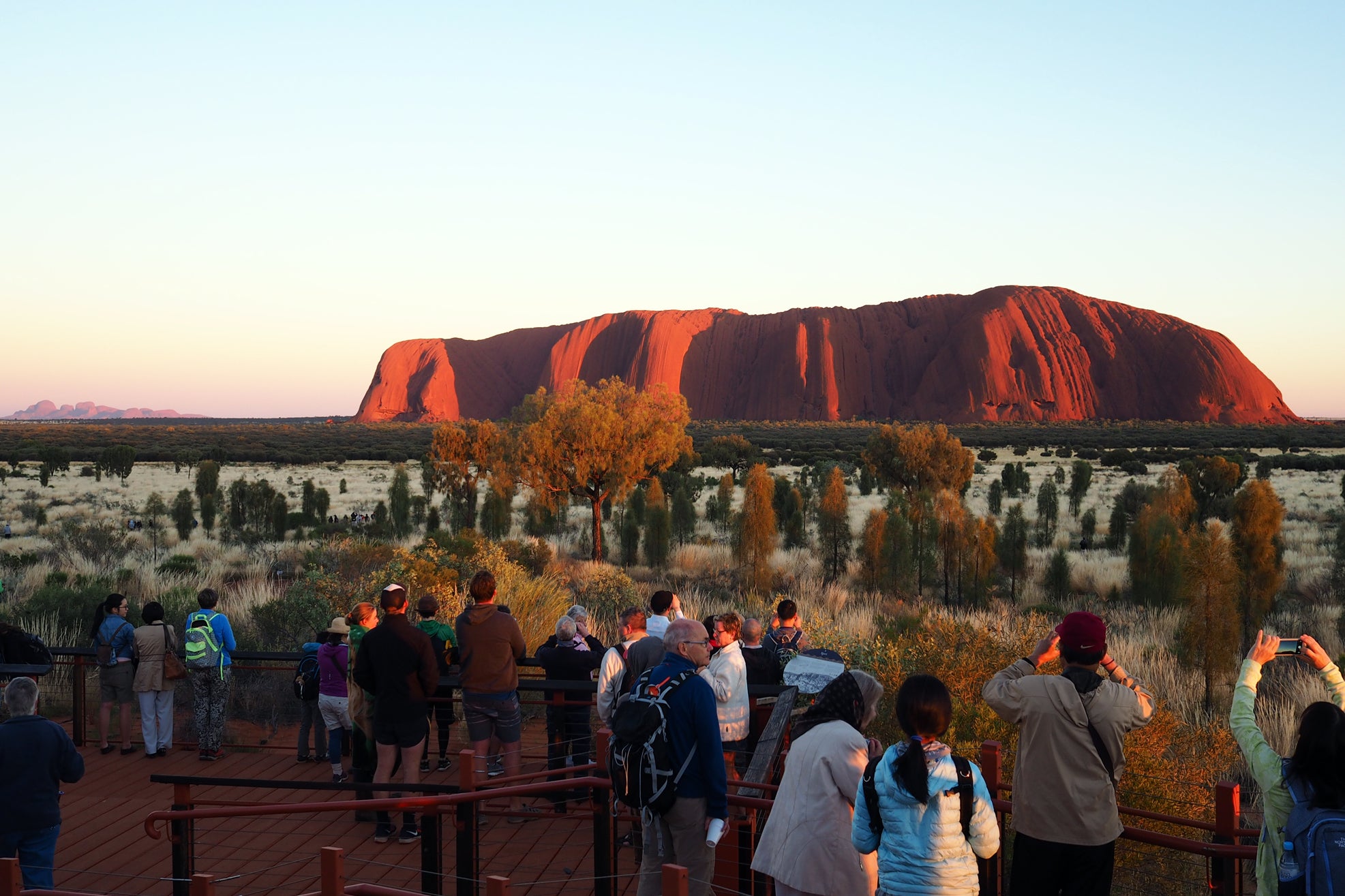Uluru locals angered by tourists ‘defecating, urinating and discarding nappies’ on sacred rock
Crowd numbers swell in lead up to climbing ban

Your support helps us to tell the story
From reproductive rights to climate change to Big Tech, The Independent is on the ground when the story is developing. Whether it's investigating the financials of Elon Musk's pro-Trump PAC or producing our latest documentary, 'The A Word', which shines a light on the American women fighting for reproductive rights, we know how important it is to parse out the facts from the messaging.
At such a critical moment in US history, we need reporters on the ground. Your donation allows us to keep sending journalists to speak to both sides of the story.
The Independent is trusted by Americans across the entire political spectrum. And unlike many other quality news outlets, we choose not to lock Americans out of our reporting and analysis with paywalls. We believe quality journalism should be available to everyone, paid for by those who can afford it.
Your support makes all the difference.Hundreds of tourists are descending on Uluru in Australia each day to climb the sacred rock before it closes, leaving “sickening” amounts of rubbish in their wake.
Locals have accused visitors of discarding human waste, nappies and rubbish on the attraction in the northern Territory’s Red Centre, where a climbing ban will come into effect from 26 October.
The number of climbers has skyrocketed from around 140 each day before the upcoming ban was announced in 2017, to between 300-500 daily visitors.
Broadcaster ABC shared a photo it had received from a member of the public, showing a long line of people snaking up the rock. The local resident who sent the picture said it was “the busiest they’ve seen [Uluru]”, adding that there were cars parked for 1km on either side of the road leading up to the car park at the base.
“It makes me sick looking at this photo at the disrespect and disregard shown for the traditional owners’ wishes,” said a spokesperson from the Darug Custodian Aboriginal Corporation.
“Not only do people climb it but they defecate, urinate and discard nappies and rubbish on it.
“I for one cannot wait for the climb to be permanently closed and our sacred lore, culture and traditions to be acknowledged and respected.”
Stephen Schwer, chief executive of Tourism Central Australia, told the ABC: “When there is the kind of influx of drive travel as we are seeing at the moment, there is an influx of waste.”
“There’s just rubbish everywhere, including used toilet paper,” added Lindy Severin, the owner of cattle ranch and campsite Curtin Springs Station about 100km away. She said thousands of campervans heading to Uluru had been dumping toilet tanks on the roadside.
The massive sandstone monolith, sometimes known as Ayers Rock, is sacred to Aboriginal Australians, who have long campaigned to stop people climbing it.
There is already a sign at the bottom of the path, reading: “We, the traditional Anangu owners have this to say. The climb is not prohibited but we ask you to respect our law and culture by not climbing Uluru.
“We have a responsibility to teach and safeguard visitors to our land.
“The climb can be dangerous. Too many people have died while attempting to climb Uluru.”
The Uluru-Kata Tjuta National Park Board announced in 2017 that tourists would be banned from climbing the rock from 26 October 2019, after a 12-strong board voted unanimously to introduce the measure.
“It is an extremely important place, not a playground or theme park like Disneyland,” said chairman and senior traditional owner Sammy Wilson at the time.
“If I travel to another country and there is a sacred site, an area of restricted access, I don’t enter or climb it, I respect it. It is the same here for Anangu. We welcome tourists here. We are not stopping tourism, just this activity.”
Tourists will still be able to walk around the base and take a cultural workshop.
Join our commenting forum
Join thought-provoking conversations, follow other Independent readers and see their replies
Comments